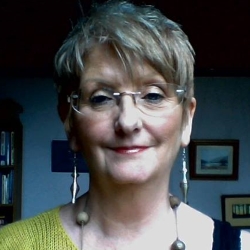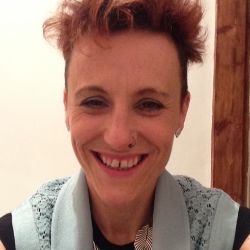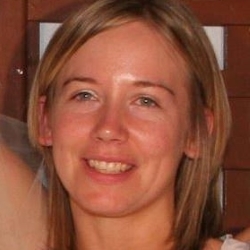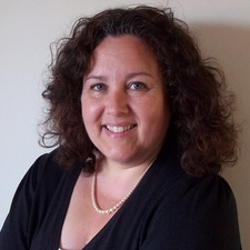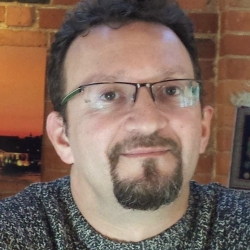Loading
Read MoreHow The Absence Of Threat Is Necessary, But Not Sufficient, In Working With Trauma – Maggi McAllister-MacGregor
Loading
Read MoreThe Extraordinary Phenomenon of Lifespan Integration: Processing Trauma, Connecting Self-States, and Integrating Experience With a Timeline – Mandy Roland-Smith
Loading
Read MorePCA and Trauma – Michael Sims
Loading
Read MoreDissociation: A Healthy Response to Trauma! – Lisa Thompson
Loading
Read More3 Ways To Get Resilient In January – Martin Weaver
Loading
Read MoreWorking with Children and Adolescents Who Have Experienced Relational and Developmental Trauma: Discussing the Forthcoming Book Release – Karen Treisman
Loading
Read MoreCybertrauma: The Darker Side of the Internet – Why Every Therapist Needs to Know – Catherine Knibbs
Loading
Read MoreSPAR Model of Trauma Therapy – Catherine Knibbs
Loading
Read MoreWhen There’s Nobody There, Rage and Shame will Keep you Company – Sue Parker Hall
Pierre Janet’s simple definition of trauma is ‘there was nobody there.’
In this presentation I will:
Define trauma, rage, & shame, use a case study to offer my understanding of how trauma, rage, & shame are related and show how a therapeutic relationship relationship transforms trauma, rage, & shame.
Read MoreTrauma Resilience: A Personal Perspective – Martin Weaver
Working with clients who have faced trauma and seeing them recover and grow is a satisfying and rewarding experience. And yet, as the therapist, what happens when we are involved in trauma?
John Wilson talks to psychotherapist Martin Weaver about his personal journey through childhood bereavement, the age of AIDS/HIV, family death, and now cancer. They explore how we can and perhaps should make the best use of our skills and experiences as therapists to ensure our own resilience through life’s major and minor traumas. Participants will be encouraged to ask their own questions and make their own observations during the conversation.
Read MoreNorthern Ireland Conflict, Trauma, and Mental Health – Kristine Abercrombie
I would love to share my own personal experience of growing up in Northern Ireland during ‘the troubles’, leaving just as the peace process began, and returning four years ago as a clinical psychologist to work with people in my community affected by the trauma of this period. The conflict in Northern Ireland, although steeped in much deeper history, started in the late 1960s, continuing until the 1990s, with dissident republican and loyalist groups continuing to attempt to upset the peace which has been obtained.
Read MoreChildhood Trauma, Brain Development and Life Outcomes – Catherine Knibbs
This interview will discuss the neurobiological systems that regulate the body and how this affects children in traumatic events. The talk will look at the stages of development, how these can be affected, and how we as therapists working with clients or parents can relieve, facilitate change, and psycho-educate around these issues.
Read MoreHelping and Healing in Trauma – Noel McDermott
Noel will cover trauma from several perspectives and with clinical experience going back to his work from the mid 1990’s. The session will cover what trauma is, what PTSD is, how trauma develops neuro-biologically, and how that manifests in the individual and also in their relationships to others.
Trauma is a complex area of work and there is no one size fits all approach. There are common pitfalls to avoid such a re-traumatisation and secondary traumatisation of the therapist.
Read MoreWhy Use Fink Conversation Cards in Work with Parents – Jane Evans
Loading
Read MoreLearning to Stop Traumatic Nightmares With Ease – Justin Havens
In this hour Justin describes his research and the intervention he has been using to help clients stop their traumatic nightmares. Justin also engages with the chat room and answers a number of practical questions from practitioners.
Read MoreLearning from Our Differences: Drawing from Our Overarching Humanity – Kristine Abercrombie
To say we are all unique does not really capture the complexity and true ‘one-of-a-kind’ we all are. Regardless of what theoretical orientation or orientations we all practice from, or our training background, all of us counsellors / psychotherapists / clinical psychologists are taught and deeply know the importance of our own self awareness, both for our therapeutic relationships and self-care.
Words such as difference and diversity, transference and counter transference, narratives, scripts and stories, authenticity and individualisation are regularly discussed. We are all trained and experienced in sitting with our clients differences, vulnerabilities and uniqueness, but it is inherently and understandably more difficult to sit with our own.
Read MoreTrauma and Blessing in the Family System – Enid Welford
Berne referred to the ‘family scripting’ that can be seen as a pattern through several generations, and the important influence of the grandparents. Thus difficulties with our immediate parents may have begun several generations in the past, and often seem to be related to unresolved traumas. Fanita English (1979) described these traumas as a ‘hot potato’ passed on to subsequent generations. Knowledge of these traumatic experiences is held within the introjected Parent, and the theme of this TA Tuesday is the usefulness of working at the source of the difficulty, i.e with the ancestor who first had the traumatic experience.
Unfortunately the knowledge we hold of our family history is not always available to our conscious mind. There are signs in the therapeutic process that indicate the presence of an impasse that spans the generations, and hopefully there will be time to discuss these signs. I also hope to discuss aspects of Family Constellations that inform my approach to these difficulties, along with TA techniques that Transactional Analysts can use to address intergenerational trauma.
Read MoreDomestic Violence in Pregnancy and Post Partum: A Review of the Evidence and How Professionals Can Support Vulnerable Women – Clare Slaney
Pregnancy is a risk factor for domestic violence. Many men are profoundly threatened by their partners’ pregnancy and change of role from their partner to another person’s mother. One third of domestic violence starts or gets worse when a woman is pregnant and one in five midwives sees at least one woman a week who she suspects is a victim of domestic violence.
One in 4 women will be affected by domestic violence and the complexities of this life threateneing situation, not least our own responses to domestic violence, mean that non-specialist counselling support for this client group can be compromised. Clare has given this talk to midwives both online and face to face where discussion has focused around the midwives’ lack of support and time, but the subject is also of interest to counsellors who, throughout out careers, will inevitably meet with clients who are experiencing domestic violence.
Read MoreLooking Beyond the Behaviour of Young People: With Person-centred Eyes – Alexandre Gieseke
During this evening, Alexandre would like to offer the possibility of discussing another way of seeing/observing young people’s behaviour – particularly young people who are LAC (Looked After Child) and those who present risk of offending/criminal activity.
Read MoreDealing With Trauma & Phobias Using NLP – Anthony Beardsell
In this session we take a look at trauma and phobias and examine how NLP approaches this specific area of change. Can NLP possibly help people recover from trauma and overcome phobias in a fifteen minute session? Join us to find out.
Designed to help uncover some of the mysticism around NLP, in this event we will be taking some practical examples and discussing how to approach trauma and phobias using various NLP techniques.
Read MoreFocusing as a Method of Working with Trauma – Ann Weiser Cornell
Loading
Read MoreCyber Trauma: Past, Present or Future? – Catherine Knibbs
This is a discussion about what cyber trauma is and how it is appearing in the therapy room. There will be a bias towards young people and the traumas associated with the use of cyber space as this is the area I both work in and research.
Read MoreTrauma & Transactional Analysis – Michael Gavin
Michael Gavin is deeply passionate about the role Counselling & Psychotherapy can play in helping people who have experienced Trauma.
Michael has extensive experience in working with people who are experiencing Post Traumatic Stress. He has agreed to talk to us about how his work has been informed by the theory of Transactional Analysis and how he thinks about the clients embodied experience, engaging with the whole person of the client to facilitate recovery.
Read MoreRage and Shame – Sue Parker Hall
In the trainings I deliver I have frequently been asked “what is the link between rage and shame?” Participants and myself have intuitively known that there is a strong relationship between them both. As a consequence I have been inspired to research the issue and have developed a model that articulates the connection between the two, and also a deeper understanding of how the therapeutic relationship can address these commonly presented, often perplexing, issues.
In this online interview I discuss a practice example of how a client may oscillate between rage and shame, the impact that this had on me as a therapist and how I worked with it.
Read MoreTA with Kids in Care: Being Part of a Therapeutic Community – Clifton Supple
Clifton Supple is Clinical Director of Physis Quantum (www.physisgroup.co.uk) recently established in Shropshire to work with children and young people who present a complex range of emotional needs, inappropriate / harmful sexualised behaviours, attachment disorders, abuse reactive behaviours and trauma.
He is intending to discuss the culture that been developed upon an explicit commitment to a whole team approach focused upon the integration of therapeutic care, educational provision and clinical components to maximise the opportunities and outcomes for the young people they support.
Read MorePTSD from a Multi Modal Perspective – Andy Williams
In this discussion, Andy considered the changes that have taken place between the definitions of Post Traumatic Stress Disorder in DSM-IV and DSM-V, and the ways in which this may inform our thinking about treatment of trauma as practitioners.
We discussed a triage approach to trauma, and looking at the importance of stabilisation as the initial treatment intervention, prior to further integrative work. We then discussed differing treatment modalities and what they may have to offer the practitioner and client in the treatment of trauma.
Read MoreHelping Families to Recover in Addiction, Trauma and Mental Health – Noel McDermott
Noel will share his experience over the past 20 years of working with families moving from survival to recovery.
This is a fascinating area of work often asking the therapist to move beyond the therapeutic frame into the social, political, child welfare (safeguarding), legal, ethical, economic cultural areas of human experience.
Read MoreDropping to the Universal: Engaging with the Potential Space to Give Voice to Traumatic Woundings – Noel McDermott
Exploring indirect and creative ways of approaching traumatic material in clients where direct talking approaches may be inappropriate or not possible.
Making meaning from a traumatic history or event is crucial in moving on and integrating the experience. As is reprocessing the emotional content to alleviate the stress of flashbacks, depression, anxiety, sleep problems and so on often associated with sever or multiple trauma.
Dealing with the trauma directly can often be contra-indicated if there are issues of age (working with young children), comorbidity with substance misuse relapse, shame, cultural and ethnic barriers to western approaches to talking therapy.
Read MoreWorking Relationally to Explore the Impact of Trauma in Children and Adolescents – Amanda Phillips & Stephanie Cooke
In this workshop we will explore the emotional and relational impact of trauma on children. This will include a brief overview of the impact of trauma on brain development and attachment patterns. Through the use of clinical examples we will demonstrate how to work effectively and safely with trauma.
Read MoreTrauma Resilience: Presentation – Martin Weaver and Felicity Biggart
The British Association for Counselling and Psychotherapy has published an article by Felicity Biggart & Martin Weaver (BACP Healthcare Counselling and Pyschotherapy April 2012, 12(2), 19-23) about the origins and research behind Trauma Resilience Training and a detailed account of the actual training process.
Read MorePerson-centred Approaches to Trauma, Critical Incidents, and Post-Traumatic Stress Disorder – Allan Turner
We enjoyed interviewing Allan about his theoretical perspective and extensive experience working with trauma, critical incidents and PTSD. Allan approaches these very challenging client issues from a person-centred perspective and writes openly and clearly about how this forms the basis of his practice.
Read MoreShame, Guilt, & Empathy in Intimate Relationship Violence – Question & Answer by Dr. Jacqueline Simon Gunn
In this video Jacquie addresses some questions raised by the audience during her lecture.
Read More
